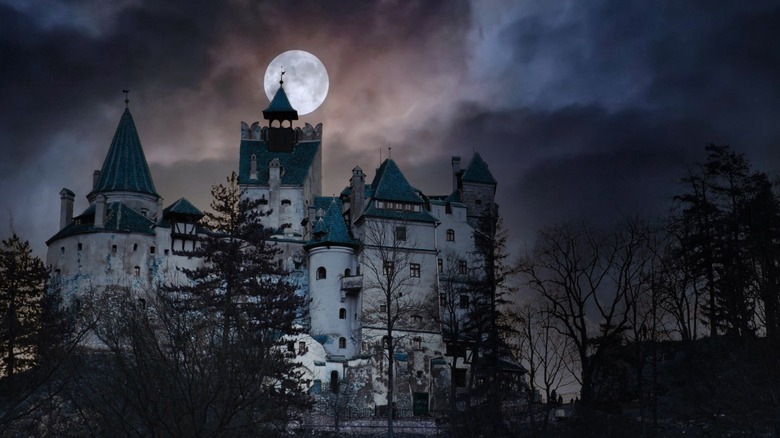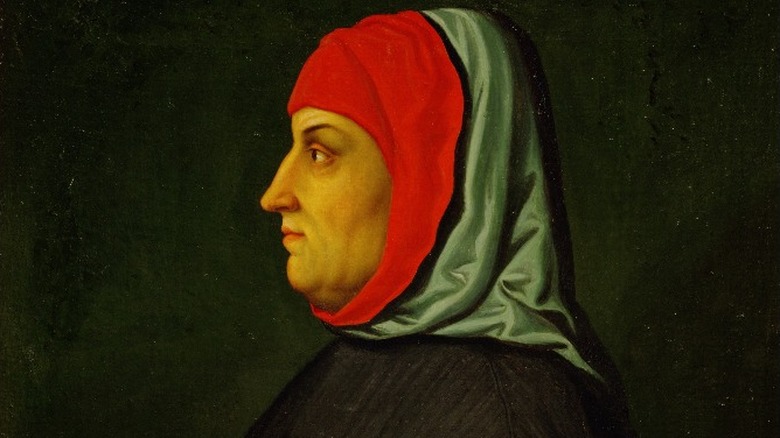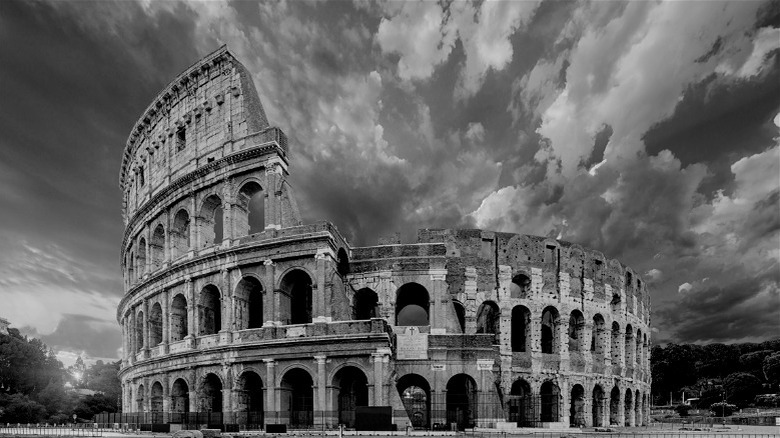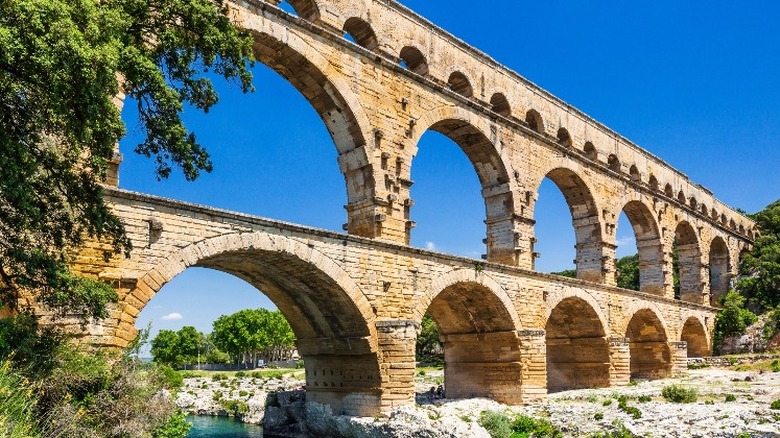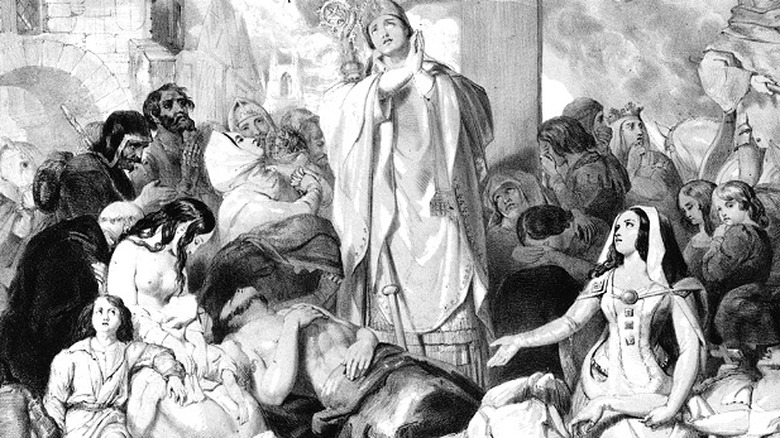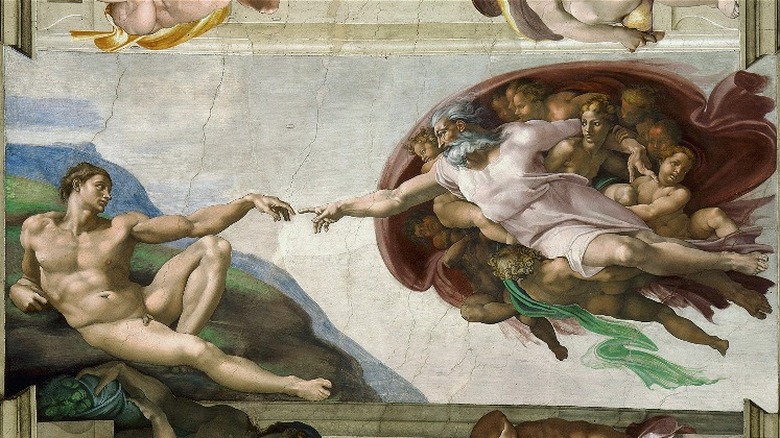Why Was It Called The Dark Ages?
One of the most recognizable time periods in history is known as the Dark Ages. In the year A.D. 476, the great civilization of Rome collapsed, thus bringing Europe into a time of "darkness." The years that would follow, up until the Renaissance, would come to be known for their "lack of scientific and cultural advancement" (per History Hit.)
Due to its portrayal in movies and books, it is likely when you hear those words they conjure up not-so-pleasant images of war, disease, and death, which reinforces the idea that this was a terrible time to be alive. While this span of 900 years did see a lot of negative things happen, as time has progressed, the term "Dark Ages" has gradually fallen out of use among historians. This change brings up a few questions: Why would scholars stop using this term, and who came up with it in the first place?
Who was Petrarch?
The idea of the Dark Ages wasn't even a thing until the 14th century. This is when we meet Petrarch. While he originally studied law, he later switched his area of study to his true passion, which was literature (via Biography). This man was a scholar and poet whose ideas and writings were so influential that they earned him the title of "Father of Humanism."
An obviously well educated and brilliant man, Petrarch is credited with coining the phrase "Dark Ages." According to History Hit, he apparently was absolutely dismayed at the scarcity of good literature that was available during his life. While bibliophiles and avid readers can relate to this feeling, it's probably unlikely that they would designate nearly a millennium of history as "dark" simply because no literature that tickled their fancy.
While Petrarch is largely responsible for this term, over the years it has been expanded to include other aspects of culture outside of literature. Many aspects of the Early Middle Ages are lumped into this category, creating a dire and rather depressing picture of this time period. However, over time it has been revealed that this depiction may not be entirely accurate.
Political chaos
The chaotic nature of politics has followed mankind since the beginning of time. While there are various types of political structures and governments in the world, none of them are safe from conflict or collapse. The beginning of the Dark Ages started with the fall of the Roman Empire. The Romans created one of the most important civilizations in history. According to World History, at its height, this empire was the most extensive political and social structure in the western world. For centuries this was the case, but in 476 this mighty empire finally fell to invading forces such as the Goths, Visigoths, and the Huns.
When the Roman empire fell apart, that meant the government and political structure that had been a constant for so many years disintegrated as well. Multiple new kingdoms popped up and attempted to seize power over the remaining common people as well as the capital (per The Finer Things). After years of being ruled by one individual, there were now many different tyrants and authoritarians trying to seize control. As a result of the power vacuum that had been created, battles, wars, and violence between various groups ensued. In the midst of all the disorder, one entity did rise to power. Christianity would eventually become one of the most influential and powerful forces in the western world.
Social upheaval and deterioration of infrastructure
The collapse of the political stability of the Roman Empire also resulted in many other aspects of society falling apart. The technological advancements, art, and literature, were just some of the things that took a major nose-dive during this time.
According to the writer of the "Straight Dope" column (posted by Washington City Paper), Roman achievements like structured roads and aqueducts were no longer being properly maintained. This not only led to these ancient marvels falling into disrepair, they can be linked as well to a rise in disease. That increase in incidents of disease can subsequently be linked to many other problems that began to manifest in post-Roman society.
In addition to the lack of maintenance of city infrastructures, there was also a decline in some areas of the arts and literature. According to Britannica, in the western part of the former empire, almost no sculpture or paintings were produced during this time. Art and literature were presented differently, primarily in the form of illuminated manuscripts like the Lindisfarne Gospels. The growing Christian religion also heavily influenced this change.
Plague and disease
One other defining feature that supposedly made the Early Middle Ages such a dark time was the rise in illness and disease. Although germs and sickness were not unique to this specific time, there do appear to be various types of diseases that were running rampant. According to Medieval Chronicles, some of the most common illnesses of the Middle Ages were cholera, dysentery, typhoid fever, and chickenpox. However, the most deadly was known as the bubonic plague.
Though the most infamous spread of the plague, known as the Black Death, ravaged the world in the 1300s, there were other bouts of the disease that took place prior to that. In 542, the Plague of Justinian (also an outbreak of bubonic plague) was estimated to have killed as much as a third of the population of the fallen empire (per Washington City Paper). While the collapse of the Roman civilization didn't start the outbreak of disease, it did contribute to it, due to the lack of structure and gradual failure of public works.
Was it really that dark of a time?
It's obvious that the implosion of a highly advanced society is a problem that has a ripple effect for generations to come. These times saw increased violence, famine, disease, and untimely death. Additionally, there was loss of knowledge, literacy, and different aspects of a culture that had lasted for centuries. Make no mistake: There is ample reason to refer to this period of history as "dark." But as researchers have studied it more, many have concluded that things were not quite as dark as they seemed.
According to History, there are various reasons that things after the fall of Rome weren't all bad. Christianity had a heavy influence on all aspects of society, from politics to art to medicine. In the opinion of some, the power that the Church gained paved the way for new and different values and attitudes in the Western world, some positive, some negative. Reaction to Catholicism's power and influence would eventually result in the Protestant Reformation and the Enlightenment. There was progress being made in the area of science and math. Though they were behind their counterparts in the Islamic world in these fields, Europeans were still managing to move forward.
When looking back at the rougher times in history, one thing often becomes clear. Despite whatever "darkness" may be present, humans still manage to produce some light and always move forward.
